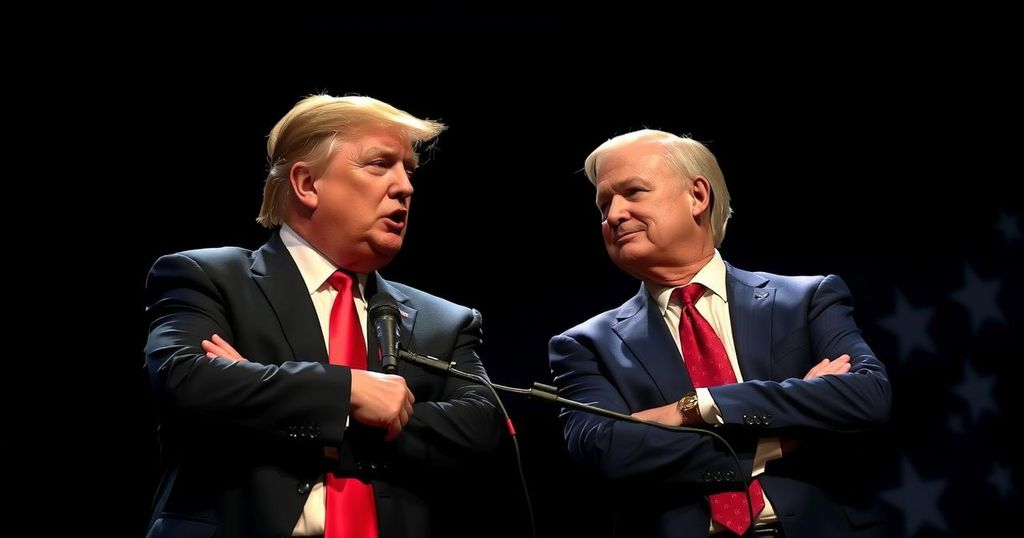The United States has lost its technological leadership, with China leading in 37 critical technologies. A new American innovation policy is needed to empower startups and small businesses. Donald Trump and JD Vance are positioned to enact these reforms, countering the current administration’s restrictions on emerging technologies. An emphasis on small business and reducing regulatory burdens is essential for restoring American competitiveness and fostering technological innovation.
As the 21st century progresses, the United States faces a significant challenge in technological leadership, having fallen behind China in 37 out of 44 key technologies. This decline in innovation and competitiveness underscores the necessity for a renewed innovation policy centered on fostering startups and small businesses, which are vital for breakthrough innovation. Donald Trump and JD Vance emerge as key figures capable of implementing such reforms, with Vance’s venture capital experience providing insight into the startup landscape.
The Biden-Harris administration has shown a critical stance towards emerging technologies, imposing regulations that hinder the growth of sectors like blockchain, cryptocurrencies, and artificial intelligence. They have also agreed to allow countries to circumvent patent protections on crucial mRNA technologies, raising concerns about the protection of intellectual property and our economic interests. As a consequence, the U.S. Patent and Trademark Office recorded more patents issued to foreign inventors than domestic ones for the first time in 2022.
Despite the U.S. being a pioneer in various technological fields, it produces only a fraction of the global chips and is heavily reliant on foreign entities for manufacturing essential pharmaceuticals and lithium-ion batteries. This reliance threatens American economic independence and innovation potential. To remedy this, collective action from industry, academia, and the government is essential in revitalizing the innovation economy and emphasizing the importance of small businesses, which historically drive innovative breakthroughs and job creation.
Trump’s approach prioritizes policies that champion innovation, aiming to mitigate the administration’s prior constraints on entrepreneurs. His administration would be likely to bolster small business initiatives, leveraging the Small Business Administration to facilitate investments in new technologies and streamline processes. The National Institute for Standards and Technology would also play a critical role in ensuring American standards dominate the global landscape, investing in transferring technology from academia to industry, specifically targeting startups.
The revival of policies crucial for enhancing American innovation will be pivotal in reclaiming the country’s competitive edge. Drawing on the nation’s rich legacy of entrepreneurial spirit, a focused strategy is essential to ensure that innovators and small businesses can thrive and play a foundational role in shaping the future of the U.S. economy. It is imperative to pursue necessary reforms to reinstate America as a global leader in technology and innovation, safeguarding its interests against foreign competition.
In recent decades, the United States has witnessed a decline in its status as the global leader in technology and innovation. By falling behind countries like China in crucial technological sectors, the U.S. faces implications for both its economic prosperity and national security. The current administrative policies have demonstrated a strain on startups and emerging technologies, necessitating a reevaluation of the innovation framework that empowers these critical segments of the economy. Emphasizing the role of small businesses in driving innovation is vital to restoring competitiveness and fostering a robust economic landscape.
To reclaim its position as a leader in technological innovation, the United States must implement reforms that focus on the unique challenges faced by startups and small businesses. The potential of these entities to bring forth disruptive innovations and create jobs cannot be overstated. By aligning policy with the needs of innovators and ensuring that the regulatory environment is conducive to growth, a future where America thrives in the competitive technology landscape can be secured. Leadership from figures such as Donald Trump and JD Vance could be instrumental in realizing this ambition.
Original Source: fortune.com






